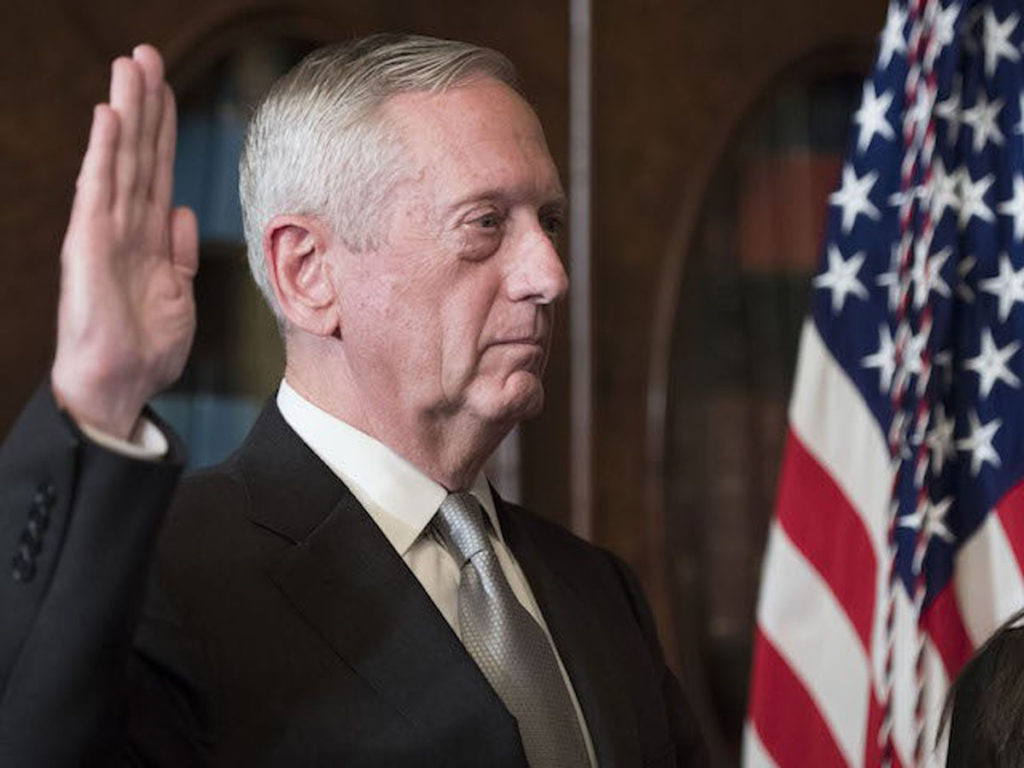When U.S. Secretary of Defense James Mattis pauses to say that America’s priority is no longer fighting terrorism but the competition among great powers, and expresses his concern that American military superiority is fading, this is an important statement for an important political moment, and we should stop and reflect on its causes, sources and implications.
After a period of two decades monopolizing over the world, its sources of wealth and its international institutions like the United Nations, America does not want its situation to change, whatever the price. Thus, the wars the United States has waged against Afghanistan, Iraq, Libya and Syria, and most recently Yemen, have not aimed to fight terrorism in the first place. This is because the United States is the one who created this terrorism, establishing its organizations, training fighters, arming them and funding them through its followers, the rulers of Saudi, and Islamist businessmen. Rather, the United States aimed through these groups to spread terrorism, and to undermine the rise of Russia and China, who had begun to ascend the ladder of the new world polarization. Hence Russian President Vladimir Putin’s statement that “fighting terrorism in Syria is defending Moscow,” a careful and precise statement revealing the ultimate aim of America’s terrorist war against the Arabs and their ally Iran. Likewise, the position of the Islamic Republic of Iran is based on defending Syria against terrorism as a way of defending Iran — a precise position as well, and strategically and politically sound — in addition to the historic friendship between the two countries and people.
But despite its efforts to bring down the Syrian state and to fragment the Axis of Resistance, and to divide Iraq by creating a Kurdish entity in the north, these efforts have failed thanks to the sacrifices of the Syrian army and its allied forces, and the steadfastness of these allies with this position militarily and politically, which has forced the deep state in the United States to search for an alternative scenario.
In considering this alternative scenario, the United States has two priorities: First is to reduce the rise of any new pole by any means possible, especially through terrorist intelligence agency action; the second is to stimulate the American economy in order to remain the locomotive pulling the world economy and to amass more of the wealth of the world’s peoples among their own ruling elite by using the deep state.
Mattis’ statement against Russia and China expresses the extent of concern among this elite and the deep state that this Russia-China pole has become a fait accompli. His statement that American military dominance is fading expresses a sense of a deep economic crisis caused by the lack of sufficient wars for American military manufacturers to remain active while generating the high profits, which today comprise the main locomotive of the American economy.
The American economy since World War II has depended primarily on the growth of military manufacturing at the expense of other manufacturers and economic sectors, and became the backbone of this economy after it was joined by media and financial institutions. These manufacturers are in severe need of new, continuous wars so that the American army and the armies of the countries loyal to the United States can purchase their products and can thereby obtain new resources, in turn enriching the owners of these bloody industries.
Thus, for the United States the lack of major and continuous wars means not only the fading of its military superiority, but also economic recession. They have tried to address this recession through the theft of thousands of tons of Iraqi and Libyan gold and the theft of more than $800 billion from Iraq, whose fate no one knows, as well as U.S. President DOnald Trump taking $500 billion as protection money from Saudi Arabia in exchange for its rulers remaining in power.
All of this will not stimulate American military manufacturing and create a cycle in the economy if there are not large, continuous wars in the world which allow the American military to purchase weapons and to push the economic wheel forward. Therefore, Russian Foreign Minister Sergey Lavrov responded to the American defense secretary by saying that strategic stability will not be achieved except through cooperation with Russia and China — the response of those who believe in the importance of relations between countries based on achieving stability and security in the world, a legal and humane response unconcerned with the structural problem from which the post-imperial economy in America suffers today, and which cannot be solved by continuously creating major wars to occupy American weapons manufacturers.
This is the structural problem from which the American economy suffers, and it could extend through its shadows into most of the world’s economies. This is the misfortune of mankind today — that the economy of the strongest country in the world is based primarily on a destructive, bloody industry, and on creating wars throughout the world in order for America to retain its economic strength.
This article was translated and edited by The Syrian Observer. Responsibility for the information and views set out in this article lies entirely with the author.


